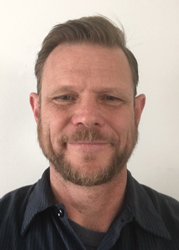Field Supervisor, Hawkins Commercial Appliance Service, Englewood, Colo.
“It’s surprising how many backyard mechanics are out there — and electricians and plumbers that don’t realize how something should be installed.”
Although he now has almost three decades as a service tech under his belt, Hawkins Commercial Appliance Service’s Kevin McCaw got into the business through his love of cars.“My neighbor across the street got me into hot rods. I went to automotive school after high school, then worked for a couple of shops,” he says.
 During a short stint at a hotel working with refrigeration, McCaw quickly discovered working 30 feet up on a ladder was out of his comfort zone. “My fear of heights was going to keep me from being a productive refrigeration tech,” he says. “When my sales manager joined Hawkins, he referred me to the company, and I’ve been here since September of 1995.”
During a short stint at a hotel working with refrigeration, McCaw quickly discovered working 30 feet up on a ladder was out of his comfort zone. “My fear of heights was going to keep me from being a productive refrigeration tech,” he says. “When my sales manager joined Hawkins, he referred me to the company, and I’ve been here since September of 1995.”
FE&S: What’s your specialty?
KM: I’m a hot-side technician, specializing in cooking and warewashing equipment. You will never catch me on a roof. In fact, I spent most of today with an 18-foot dishwasher that needed a lot of love.
FE&S: How has equipment on the hot side evolved?
KM: It has definitely become more complicated. It used to be these units had mechanical safety devices and thermostats; now everything is electronic. Even fryers are automated to self filter. And today’s equipment can cook in different cycles and record data. We’re at the point where you can make a spreadsheet from data stored in the equipment to see what products the operators are using. Unfortunately, when you mix electronics with heat and moisture, naturally you have more problems. Still, it’s really cool to see all the latest functions. With the types of machines I work on now, I’d be lost without the training I’ve had.
FE&S: What should every service technician know?
KM: The hardest part is the electricity aspect, and that’s one of my strongest suits. Techs need to have a strong electrical background, including familiarity with different types of motors and reading schematics. It’s also necessary to know about gas and steam heat when working with big industrial dishwashers. Having the correct tools and instruments is pretty important, too.
FE&S: What is the most common mistake foodservice operators make with commercial foodservice equipment?
KM: A lot of it is training on equipment and something as simple as a unit not being assembled properly. For example, I’ve often seen operators using a hot cabinet to bring food up to temperature when the equipment does not have the horsepower to accomplish this.



